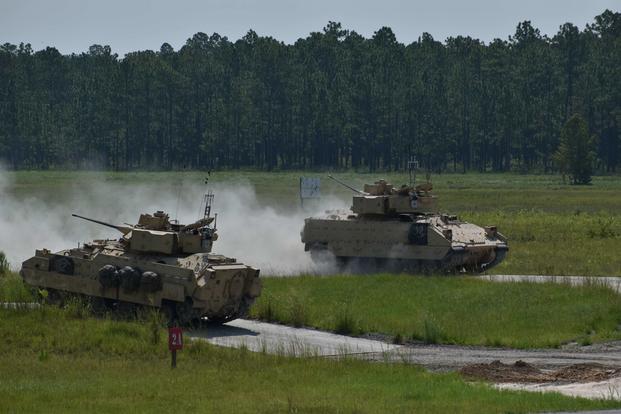U.S. Army Chief of Staff Gen. James McConville told lawmakers Tuesday that many casualties from tactical vehicle rollover accidents could have been prevented if soldiers had been wearing their seat belts.
McConville's comments came during testimony before the House Armed Services Committee on the Army's fiscal 2021 budget request.
Rep. Gil Cisneros, D-California, said he is concerned about the 116 Army mishaps, or accidents, last year that resulted in 28 casualties and approximately $362 million in damage or lost equipment.
"These mishaps occurred in training in operational environments; they were not combat losses," he said. "While it's understood that military training is inherently dangerous, the committee is concerned about these recent trends and questions ... whether changes are required to training program safety standards and our range safety practices."
Related: Army Secretary: Service Is Reviewing Training After Deadly Vehicle Accidents
McConville said he is "very, very concerned about some of the training exercises we have had where we are starting to have vehicles rolling over and people not wearing seat belts."
"Some of this is getting back to being around very large, expensive equipment where we started maneuvering our forces, which was very different from what we were doing before," he added. "We have got to fix that. We cannot have that many accidents, and we cannot lose soldiers in training. We are doing everything we can do to fix that."
Cisneros asked McConville, "Was there anything you implemented? Was there an overview of procedures?"
McConville replied that analysis shows that some soldiers involved in vehicle rollover accidents were not wearing seat belts.
"If you are wearing your seat belts, you survive. If you are not wearing your seat belts, you don't," he said. "I mean sometimes it's just basics that we need to get back to. ... This is basic soldiering."
McConville attributed some of the problem to inexperience, since the Army brings in 130,000 new soldiers every year.
"They are coming right off the block. They need time to learn how to drive their vehicles; they need to learn how to maneuver their vehicles," he said. "We don't necessarily need to change our policies. We need to execute them and make sure we have given our soldiers, at the lowest level, the training that they need."
-- Matthew Cox can be reached at matthew.cox@military.com.
Read More: US Soldier Dies, Two Others Injured when Armored Vehicle Overturns During Training in South Korea












